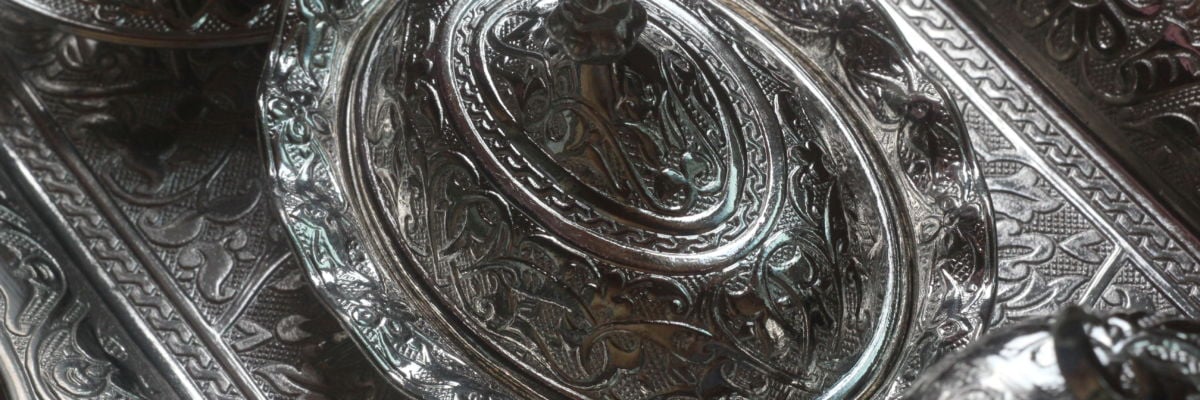
The Church recently remembered the martyrdom of St. John the Baptist. Let’s remember something of the history and what it might mean for today.
Recall King Herod the Great, the ruler who met with the Magi on their way to Bethlehem and later slew the infant boys of Bethlehem? Herod had three sons. (He actually at least six and perhaps more, but he executed three of them.) Upon Herod’s death, his “kingdom” (he was really a vassal king at Roman pleasure) was parceled out among three sons, none of whom acquired the title of “king.” They were “tetrarchs.” Archelaus, who ruled in Jerusalem, was quickly deposed, which resulted in the emergence of the office of Roman procurators. Philip ruled lands east of the Sea of Galilee, today mostly in Syria and Jordan. Antipas had two noncontiguous territories: Galilee (hence his involvement in Jesus’s trial—Luke 23:6-12) and a sliver extending down into the wilderness around the Dead Sea. It was there that his father, Herod the Great, had built Machaerus, an isolated fortress palace calculated to be a refuge if needed. (This family was not loved.) John died there.
The gospels recount John’s arrest for having criticized Antipas—specifically, his “marriage.” According to Matthew (14:3-4) and Mark (6:17-18), Herodias had been Philip’s wife. Some scholars dispute this (claiming the lack of a proper name in Luke 3:19) and connect her instead with other members of the Herods, for whom incest had been a generational family affair. I take the Matthean-Marcan attribution.
Herodias subsequently divorced to marry Antipas, who also divorced his first wife in the hopes that the marriage with Herodias would be politically advantageous. All the Herods (a) had battled their way to power by political intrigues or vassalage to others; (b) were unpopular with their subjects and generally regarded by the Jews, at least, as practical pagans if not foreigners; and (c) sat on relatively shaky thrones, whose securing was a constant game of political calculation.
The Old Testament explicitly proscribes marrying the wife of one’s brother (Lev. 20:21). John the Baptist kept speaking up about it, for which he was eventually arrested and killed. What does that say to today?
First, looking at the death of John through modern lenses can be distortive. A modern might say that John was fixated on “pelvic issues”—the sexual morality of Antipas and Herodias—as compared to his earlier “social justice” focus, when he preached to soldiers, tax-collectors, and others seeking baptism in Jordan (e.g., Luke 3:10-14). Had he gone from “social justice warrior” to prosecuting a “culture war”? No.
For John—as for Israel—God’s morality is one. There are not “sexual” issues versus “social justice” issues. There is one way of living right before Yahweh: according to the Torah, the Law. The commandments—all 613 of them found in the Old Testament—were part of the Covenant with God, by which “you will be my people and I will be your God” (Exod. 6:7). These mitzvot express the content of that relationship, whether in matters of sexual rectitude or fair treatment of subjects, are what it meant to be “holy, because I, the Lord Your God, am holy” (Lev. 20:26). To postulate some division between “personal” and “social” morality is anachronistic: it is to force into the Bible the categories of our times, not theirs.
Looking at expectations for Antipas through the lens of “Church/State separation” is also misleading. For one thing, in antiquity there was no such thing; one’s gods were considered tied up with one’s national fate. That’s why when the Romans or Babylonians or Assyrians conquered, they also demanded worship of their gods, who clearly were stronger than yours since you lost. That said, if you already have a hundred gods in the temple, you can probably squeeze in a couple more, especially since most of them were just different names for certain common things—e.g., war or beauty.
Israel’s faith is different. On the one hand, a monotheistic faith cannot accommodate a few extra deities. On the other hand, Israel had the concrete experience of defeat: by the Assyrians in the 700s B.C.; Judah by the Babylonians in the 500s B.C., leading to the Exile; the whole place by the Romans in 63 B.C. That would require a different theology from “my god is bigger than your god!” It might be seen as divine punishment (e.g., Jeremiah regarding the Babylonians), or it might be seen as a mystery of divine Providence, but it did not shake faith in the One True God.
Because of Israel’s covenantal relationship with God, it also meant that Israel’s leader was supposed to be both the leader and example of living according to that covenant. It’s why Israel at first doesn’t have a king: Yahweh is Israel’s king. It’s later why the prophets criticize so many of Israel’s kings as anti-examples, as unfaithful to what their vocation should be. It was not a question of their “personal morality” versus their “official duties.” He who was to rule Yahweh’s people had to be in right relation to Yahweh. It’s why God praises Solomon when he prays, “Grant me wisdom … [to] lead this people, for who is able to govern this great people of yours?” (2 Chron. 1:10). “Wisdom” is living in right relation to Yahweh, which is why, when Solomon allows his many wives to import idols, that luster fades. Clearly, Antipas living in a forbidden relationship with his brother’s divorcée also violates the kind of life and leadership expected of one who aspired to rule over Jews.
We should not go away thinking such was Israel’s cramped worldview, which we have grown beyond. The “things of God and of Caesar” are not assets divided in a “partnership” between equals: there is nothing Caesar has that was not God’s first. The idea that Caesar’s order is an autonomous order, utterly independent of God’s dominion, is not the Jewish or the Christian vision. Neither is the idea that some morality is “social” whereas other is “personal” and that God parses between the two. We can learn a lot from John’s integrated vision—including the costs of fidelity.



